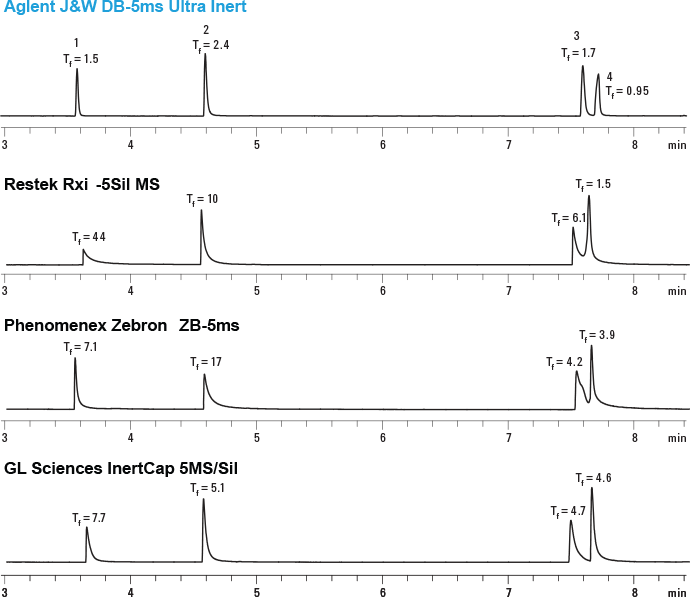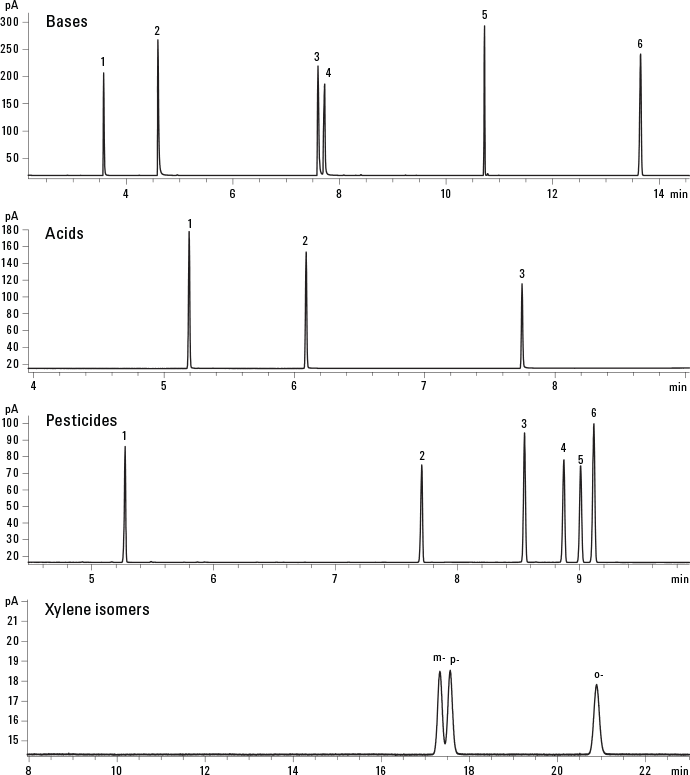Access Agilent eNewsletter, November 2014
>> Update My Profile | Subscribe to Access Agilent | Article Directory
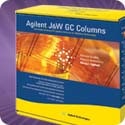
GC Column Excellence Part II – Avoid GC rework with Agilent J&W GC Columns
By Gary Lee
Agilent Product Marketing Manager, GC columns
Gas Chromatography (GC) columns that do not provide accurate results will create rework and reduced productivity. Last month, in the first of a four-part series on this topic, we explained how using Agilent columns can help you achieve stronger signals, sharper peaks, better resolution, and less bleed. This month, we show how you can use Agilent J&W Ultra Inert GC columns to analyze very active samples and the importance of using the correct GC column for optimized lab results.
The right column for the right application
When the GC flow path is not inert toward active compounds because the correct column is not being used, results can prove to be unreliable. Agilent J&W Ultra Inert GC columns deliver a better peak shape for active compounds which can be verified by tailing factor (Tf) calculations.
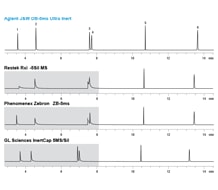 Enlarge
Enlarge
Figure 1. The Agilent J&W DB-5ms Ultra Inert GC column provides excellent peak shape for basic compounds.
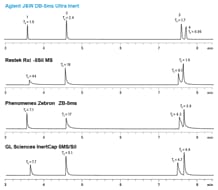 Enlarge
Enlarge
Figure 2. Active compounds have a lower tailing factor when using the Agilent J&W DB-5ms Ultra Inert GC column.
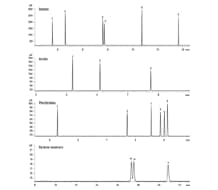 Enlarge
Enlarge
Figure 3. The Agilent J&W DB-5ms Ultra Inert GC column handles many different bases with complete reliability.
Better peak shape for basic compounds
Figure 1 shows the noticeable peak tailing with the Restek, Phenomenex, and GL Sciences columns. Conversely, the Agilent J&W DB-5ms Ultra Inert column delivered excellent peak shapes for the compounds of interest.
Significant reductions in tailing factors
Compared to other columns, the Agilent J&W DB-5ms UI GC column showed a significant reduction in tailing factors for four active bases. In addition, columns from other suppliers could not completely resolve 4-methylpyridine and N,N-dimethylacetamide (Figure 2).
Versatile, reliable Agilent J&W GC columns
Figure 3 shows favorable results achieved for a diverse group for bases, chlorophenols, organophosphorus pesticides, and xylene isomers, illustrating the versatility of the Agilent J&W DB-5ms UI GC column.
Agilent offers the best GC columns for reduced detection limits
In the third part of this series, we will show you how you can increase selectivity by using column pairs to separate halogenated compounds, without having to switch column sets for different methods. Until then, learn how Agilent J&W Ultra Inert GC columns and Inert Flow Path solutions can help you meet ever-increasing demands for reduced detection limits. Additionally, you can see for yourself how Agilent J&W GC columns lead the market for versatility and inertness against the competition.
>> Update My Profile | Subscribe to Access Agilent | Article Directory
Figure 1.
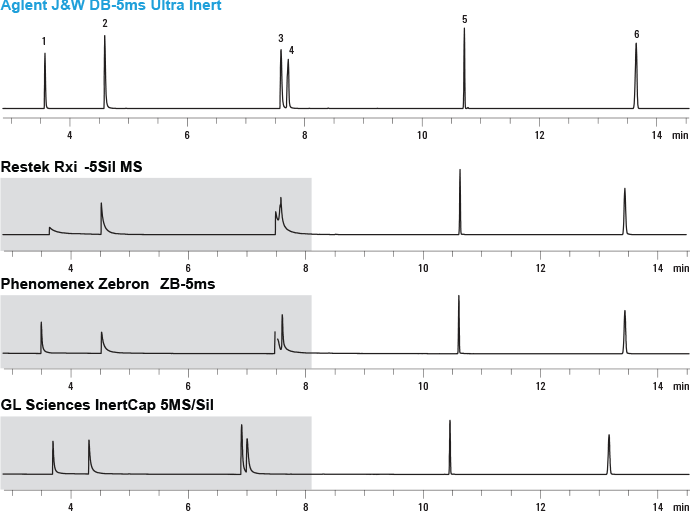
Peak ID
- Triethylamine
- Pyridine
- 4-Methylpyridine
- N,N-dimethylacetamide
- 2,4-Dimethylaniline
- Dicyclohexylamine
The Agilent J&W DB-5ms Ultra Inert GC column provides excellent peak shape for basic compounds.
